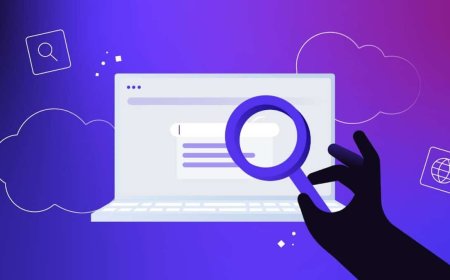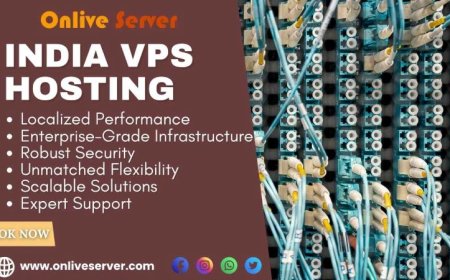The Future of Asset Ownership: Rise of Tokenization Platforms
Discover how asset tokenization is transforming ownership in 2025. Learn how tokenization platforms are changing real estate, equity, art, and more.

What if owning a piece of the Eiffel Tower, a Picasso painting, or a Manhattan skyscraper was as easy as buying a stock?
Welcome to the age of asset tokenization a revolution that is redefining how we perceive, trade, and own assets globally.
In 2025, the concept of digital ownership has gone far beyond cryptocurrencies and NFTs. Today, asset tokenization platform development is accelerating across various sectors including real estate, fine art, commodities, private equity, and even intellectual property. As regulatory clarity improves and blockchain matures, tokenized assets are shaping up to be one of the most disruptive forces in the global financial system.
What Is Asset Tokenization?
Asset tokenization is the process of converting ownership rights in a real-world asset (RWA) into a digital token on a blockchain. These tokens can represent partial or full ownership and are traded on tokenization platforms.
In simpler terms: its breaking large, illiquid assets into smaller, tradable digital pieces enabling fractional ownership, faster settlements, and increased global liquidity.
Types of tokenized assets:
-
Tangible assets: Real estate, gold, luxury cars, art, and collectibles.
-
Intangible assets: Bonds, stocks, patents, revenue streams, or intellectual property.
Why Tokenization Matters in 2025
Tokenization isn't just a trend; it's a transformation. Traditional asset markets are plagued by inefficiencies, intermediaries, and limited accessibility. Tokenization addresses these pain points by:
-
Lowering entry barriers through fractional ownership.
-
Improving liquidity for traditionally illiquid assets.
-
Enabling global, 24/7 trading.
-
Increasing transparency with blockchains immutable ledger.
-
Reducing costs by removing middlemen and automating compliance via smart contracts.
According to the Boston Consulting Group, asset tokenization could unlock a $16 trillion market by 2030. In 2025 alone, weve seen tokenized assets cross $3 trillion in volume and the number is rapidly growing.
How Tokenization Platforms Work
To tokenize an asset, the following steps are generally involved:
-
Asset Selection: Choose an asset to tokenize real estate, private equity, etc.
-
Legal Structuring: Ensure regulatory compliance for ownership rights.
-
Token Creation: Develop digital tokens representing ownership or equity.
-
Smart Contract Integration: Define rules for trading, revenue sharing, etc.
-
Listing & Trading: Tokens are listed on a secure tokenization platform for buyers and sellers.
Asset tokenization platform development ensures all these components work seamlessly through robust blockchain protocols and compliance integrations.
Top Sectors Being Transformed by Tokenization
1. Real Estate
Real estate tokenization allows individuals to buy shares of commercial buildings, condos, or land without needing millions. Investors earn returns from rents, appreciation, or dividends just like stockholders.
2. Art & Collectibles
Tokenization democratizes high-value artworks, allowing investors to hold fractional shares of masterpieces by Banksy, Van Gogh, or Warhol.
3. Private Equity
Instead of waiting years for IPOs or buyouts, investors can trade tokenized shares of private firms on secondary markets, boosting liquidity and capital access for startups.
4. Commodities
Tokenizing gold, oil, or agricultural products enables quicker and easier trading on blockchain-based marketplaces.
5. Music Royalties & IP
Artists can tokenize future royalty streams and sell them to fans or investors, creating a new revenue ecosystem that is direct and transparent.
Build an RWA Tokenization Platform: Key Components
If youre looking to Build an RWA Tokenization Platform, here are the essentials:
1. Blockchain Infrastructure
Choose between Ethereum, Polygon, Solana, or a private chain depending on your use case, scalability, and security needs.
2. Smart Contracts
These define the rules of the token (e.g., transfer restrictions, dividend distribution, voting rights) and execute transactions automatically.
3. Compliance Layer
Ensure KYC/AML checks, regional securities laws, and tax regulations are enforced within the platform.
4. Wallet Integration
Users need secure wallets to store and trade their asset tokens.
5. Marketplace Functionality
An intuitive marketplace for users to discover, invest, and trade tokenized assets. Think of it as an Amazon for Assets.
6. Investor Dashboard
Provide analytics, ROI trackers, and portfolio management tools to enhance user experience.
Major Benefits of Asset Tokenization Platforms
Democratized Investment Access
Even retail investors can now access premium assets previously available only to institutions or ultra-rich individuals.
Enhanced Global Liquidity
Traditional assets like real estate or fine art were once illiquid. Now, digital tokens allow for near-instant trade and settlement.
Cost Efficiency
Smart contracts and decentralized exchanges reduce intermediary fees and admin overhead.
Borderless Transactions
Blockchain allows global asset exchanges without geographic or currency limitations.
Real-Time Settlement
Blockchain enables instant finality, avoiding T+2 or longer settlement periods.
Challenges in Asset Tokenization (And How to Overcome Them)
1. Regulatory Compliance
Navigating the regulatory environment across jurisdictions is complex. Work with legal experts to ensure your tokens are structured properly.
2. Custodianship
Securing the real-world asset and mapping its ownership on-chain must be legally and technically airtight.
3. Valuation & Liquidity
While tokenization increases liquidity, finding enough buyers/sellers for rare or niche assets is still a challenge.
4. Market Education
Many investors still dont fully understand tokenized assets. Awareness and education are critical to widespread adoption.
Real Estate Tokenization Development: Transforming the Property Market
Tokenization has made real estate tokenization development one of the hottest sectors in Web3. Investors can buy fractions of luxury condos, skyscrapers, or resorts across the world.
Instead of buying entire properties, users can invest in 0.5% of a building and still receive proportional rental income and appreciation.
For developers, this unlocks new funding sources, reduces reliance on banks, and broadens investor pools to include global retail investors.
Governments and real estate firms in cities like Dubai, New York, and Singapore are already embracing real estate tokenization to enhance liquidity, transparency, and global investment.
The Role of Blockchain and Smart Contracts
Blockchain provides the backbone for asset tokenization. It ensures:
-
Immutable Records of ownership.
-
Transparent and automated transactions.
-
Decentralized data control.
-
Cost-efficient processes using smart contracts for rental distribution, dividends, or revenue sharing.
The security and programmability of smart contracts ensure trustless transactions with minimal room for fraud.
Whos Leading the Tokenization Revolution?
Several startups and tech giants are already developing enterprise-grade tokenization solutions. Notable platforms include:
-
Polymath a security token creation platform.
-
Tokeny focused on regulated token offerings.
-
Securitize enables compliant security tokens.
-
RealT offers fractional ownership in U.S. real estate.
-
tZERO provides secondary market trading for digital securities.
These platforms highlight the growing maturity and demand for scalable tokenization infrastructure.
What the Future Holds
Over the next five years, asset tokenization will:
-
Merge with AI for predictive investment insights.
-
Integrate CBDCs (Central Bank Digital Currencies) for instant fiat settlements.
-
Expand into climate credits, carbon assets, and tokenized ESG investments.
-
Enable DAOs to co-own assets and govern usage through decentralized votes.
From luxury yachts to carbon credits and even space real estate tokenization is the future of diversified, transparent, and democratized asset ownership.
Final Thoughts
The future of asset ownership is not just digital its decentralized, democratized, and data-driven. Tokenization has the power to unlock trillions in dormant capital and create a truly inclusive investment ecosystem for everyone.
As this shift gains traction, businesses that invest early in asset tokenization platform development will be best positioned to lead the next wave of financial innovation. Whether you want to tokenize real estate, commodities, or startup equity, the tools, tech, and talent are here and the future is now.
If youre planning to develop your own platform or tokenize your business assets, real estate tokenization development could be your entry point into this booming market. Choose a technology partner that offers end-to-end services from blockchain architecture to legal compliance and investor dashboards.







































